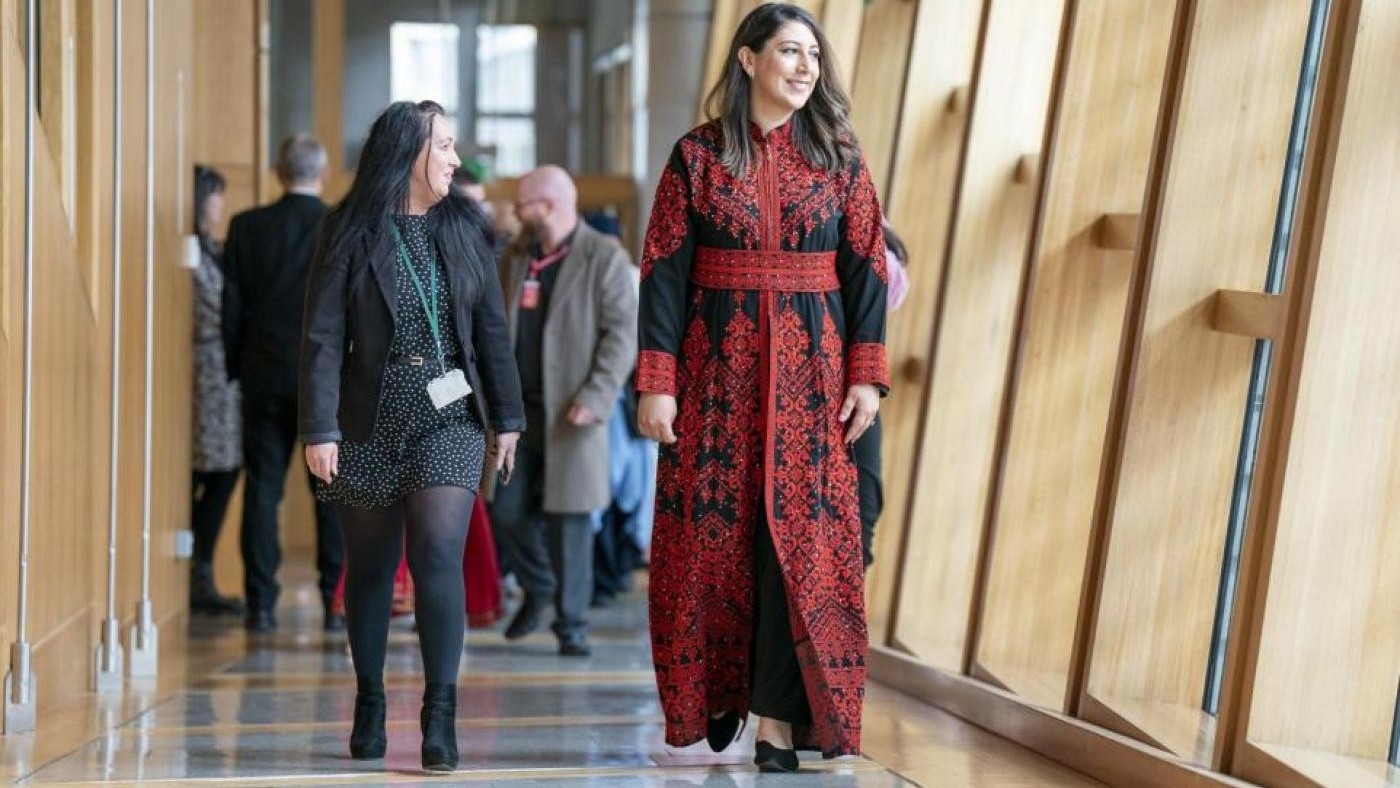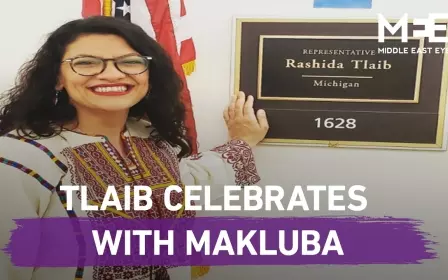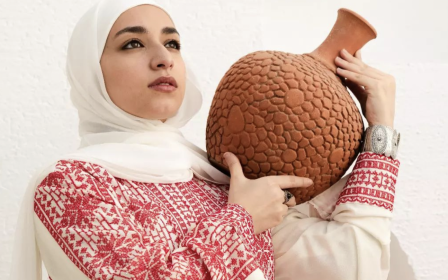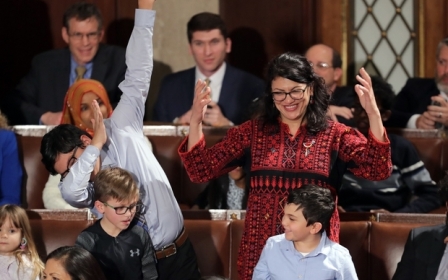Nadia el-Nakla celebrates Palestinian heritage in traditional thobe

After her husband Humza Yousaf made headlines last Wednesday for becoming the leader of the SNP and Scotland's new first minister, his wife Nadia el-Nakla has also found herself in the limelight.
Nakla, who is of Palestinian heritage and is also an SNP councillor for the West End of Dundee, took the opportunity to celebrate her culture by wearing a traditional Palestinian thobe during her husband's official nomination.
The thobe features tatreez-style embroidery, which is typically hand-stitched by women living in villages across Palestine. The garment is believed to have originated 3,000 years ago, and has become a symbol of Palestinian culture and tradition.
Hand-stitched and worn on special occasions, thobes are often passed down through generations and have become a bold statement of displaying Palestinian identity and resistance.
Thobe styles vary from each region of Palestine, and have historically been used to convey messages of resistance in the face of occupation and hardship. They can be worn for any occasion, with different styles and colour variations being made for weddings as well as daily wear.
New MEE newsletter: Jerusalem Dispatch
Sign up to get the latest insights and analysis on Israel-Palestine, alongside Turkey Unpacked and other MEE newsletters
For many Palestinians, the dress represents a deep ancestral and historical tradition, and can also be a way to document the wearer's personal story.
Representing Palestinians
El-Nakla received widespread praise from social media users, who commended her for her choice of dress.
Farah Saleh, a Palestinian choreographer and dancer based in Edinburgh, said in an interview that after seeing el-Nakla wear the thobe, “I felt really proud because as a Palestinian it really represents our struggle for existence.
“She’s representing herself, her own family, but it also means a lot as it represents resistance and the rights of all Palestinian people.”
That’s a beautiful dress! https://t.co/74reW8yB5J
— Saz 🇨🇦 (@misssazz) April 2, 2023
Born in Scotland, el-Nakla, 39, whose father is Palestinian, is a mother of two and says she still has family in Gaza, including her brother and his family, who she has expressed concern about, particularly during the May 2021 Israeli offensives on the besieged coastal enclave.
Prior to entering politics, el-Nakla was a qualified psychotherapist.
Thobes and politics
This is not the first time a Palestinian thobe has been spotted in politics.
In 2019, when Rashida Tlaib became the first Palestinian-American woman to serve in the US Congress, she also wore a striking red and black thobe at her official swearing-in ceremony and called it an “unapologetic display” of her culture.
As the first female Palestinian member of the US Congress, the thobe worn by Tlaib belonged to her mother and sparked a social media movement under the hashtag #TweetYourThobe.
Women from around the world posted photos of themselves in thobes under the hashtag #TweetYourThobe, including political figures, journalists and activists.
Nasa engineer Nujoud Merancy's decision to wear Palestinian tatreez in her headshot was also inspired by Tlaib, and garnered international attention.
"You guys, I thought like 30 people would like my pic and maybe a few would 'get' what was on my jacket. I am overwhelmed by all the love coming in. Thank you," Merancy tweeted the following day, after her photo had been shared thousands of times.
Middle East Eye delivers independent and unrivalled coverage and analysis of the Middle East, North Africa and beyond. To learn more about republishing this content and the associated fees, please fill out this form. More about MEE can be found here.




